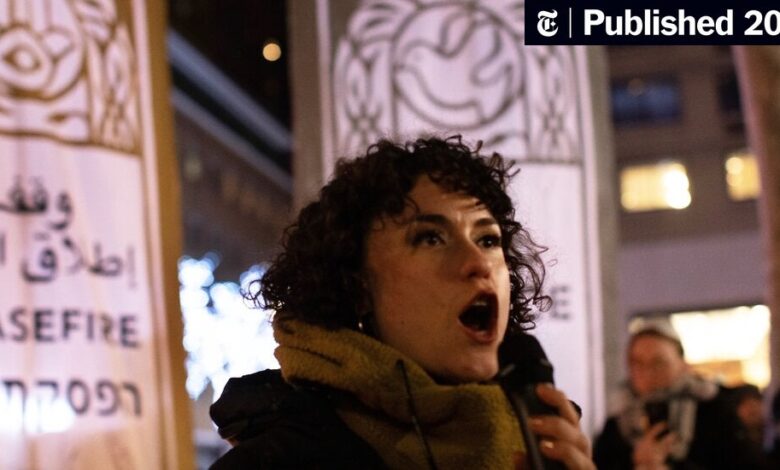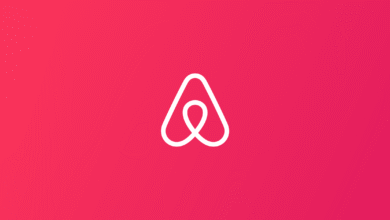Black and Jewish Activists Have Allied for Decades. What Now?

The cover of that edition of S.N.C.C.’s newsletter called attention to police killings of Black men, with the headline: “Cops Run Wild. Where Will They Strike Next?” Black and Palestinian resistance to repression were bound together. It was the same for the Black Panther Party, whose leader, Huey P. Newton, announced in 1970, “We support the Palestinians’ just struggle for liberation 100 percent.” As the Black Power Movement gained momentum, the Black-Jewish alliance came apart.
Over the next several decades, the further disintegration was marked by the sermons of the Nation of Islam leader Louis Farrakhan, who inveighs against “the synagogue of Satan” and emphasizes Jewish power and manipulation. “We have been deceived,” he said on a Washington radio station in 2010, “into thinking that the Jews have been our allies” in the civil rights struggle. “Anybody a rapper in the house?” he has asked his flock. “You can rap, ain’t nothing wrong with that, but at the top of that are those that control the industry.”
In the fall of 2022, seeming to draw from a long line of Black indictments of Jewish power, the rapper and fashion designer Ye (formerly Kanye West) told his 31 million Twitter followers, “I’m going death con 3 On JEWISH PEOPLE,” and added, “You guys have toyed with me and tried to black ball anyone whoever opposes your agenda.” Also that fall, the N.B.A. star Kyrie Irving recommended to his 4.5 million followers the film “Hebrews to Negroes: Wake Up Black America,” which purports to prove the theology of the Black Hebrew Israelites or, as some in the religious movement prefer, simply the Hebrew Israelites. The theology claims that an immense fraud has been perpetrated by Jews upon Black people. It argues that Black people are the true children of Jacob and thus God’s true chosen race. The film quotes The International Jew, a series of pamphlets published by the antisemitic industrialist Henry Ford in the early 1920s about what he describes as an insidious, all-pervasive Jewish influence. The theology seems to have inspired a 2019 shooting in a Jersey City kosher grocery by a Black couple, who murdered four before dying in a shootout with the police.
Yet in recent years, a new bond between Black and Jewish activists has emerged, catalyzed, in part, by the confluence of civil rights protests and attention to the Palestinian plight. The alliance is “growing and exciting,” Nyle Fort, a Black activist and assistant professor of African American and African diaspora studies at Columbia, told me. Fort’s activism began in 2011 with the controversial case of Mumia Abu-Jamal, who is serving a life sentence for the murder of a Philadelphia police officer, though he maintains his innocence. It continued in Ferguson, which in turn led to a trip to the West Bank. The trip was organized by Dream Defenders, a group whose causes span from mass incarceration in the United States to the boycott, divestment and sanctions movement against Israel. In the West Bank, Fort met a Palestinian father, newly released after three years in an Israeli prison, who reminded Fort of his nephew, who is currently incarcerated. Rather than discuss his nephew’s charge, Fort emphasized that his “10-year sentence reflects hundreds of years of racial bondage” and that the common theme between his nephew and the Palestinian father was subjugation. The Palestinian was locked up for resisting Israeli occupation, Fort’s nephew “for essentially,” Fort said when we spoke by Zoom, “being young, Black and poor.” Fort told me about the partnership between groups in the Movement for Black Lives and IfNotNow and Jewish Voice for Peace on progressive domestic issues and on Israel and the Palestinians. They are in “constant communication,” strategizing about political races, planning campaigns to shape public opinion and mobilizing people to attend one another’s actions.
Beyond collaboration, there is a convergence and mutual amplification of outrage. Three days before the November protest in Washington, the author Ta-Nehisi Coates appeared at a kind of teach-in in front of a packed chapel at Union Theological Seminary in Manhattan, with hundreds more watching in overflow rooms and an additional 2,200 by livestream. (The next morning, he delivered his message again on the progressive news show “Democracy Now!” which has 1.9 million YouTube subscribers.) Coates spoke about a recent trip to Israel, his first, with visits to the Aqsa Mosque in Jerusalem and to the West Bank city of Hebron. Both places have sacred histories running back to Abraham; the competing claims of Muslims and Jews have spurred riots and massacres perpetrated by zealots on each side. But Coates told his audience that he was surprised by the lack of moral complexity in what he encountered. Israeli soldiers carried “the biggest guns I’d ever seen,” and “our tax dollars are effectively subsidizing,” he said, “a Jim Crow regime.” Later, Morgan Bassichis, an organizer for Jewish Voice for Peace, took the lectern and identified themself as “one of so many Jews around the country and around the world who, with our whole beings, reject Zionism as the racist, colonial ideology that it is.”
Source link




